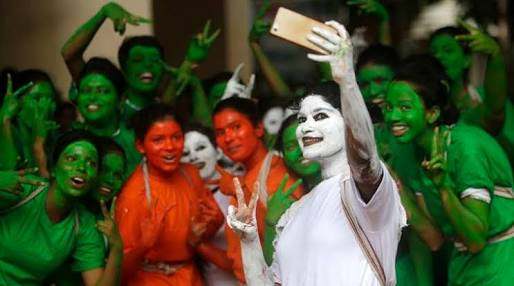Most of the citizens still vote on communal lines is proved once again in the survey conducted by Azim Premji University (APU) and Lokniti (CSDS- Centre for the Study of Developing Societies). The study titled ‘Politics and Society between Elections 2018’ show that Indians prefer voting for someone from their own caste, class, tribe or religion.
The survey was committed in 22 Assembly constituencies with 16,680 respondents. In these eight states including Andhra Pradesh, Rajasthan, Bihar, Madhya Pradesh, Maharashtra, Chhattisgarh, Telangana, and Jharkhand– 55 percent citizens will vote on communal lines.
The opinions were divided among the educated and illiterates, the upper caste and state-wise.
Among the educated lot, the identity politics was not a major deciding factor for a political leader. Only 47 percent of college-educated citizens gave importance to religion, caste, tribe etc as compared to illiterates–63 percent and school-level educated–56 percent, across social groups, as mentioned in the FirstPost.
The list was further divided among the educated lot, college literates belonging to Scheduled Tribes showed a preference of 60 percent for a leader from their own social group. When it came to Hindu and Muslims college-educated citizens, 14 percent Hindus and 15 percent Muslims preferred leaders from their own community. 56 percent citizens were biased towards Christian leaders. Whereas only 3 percent of Christians were ready to prefer a leader from other religions.
The state-wise division varied greatly between Madhya Pradesh and Andhra Pradesh, the latter being the lowest–same caste and religion favoring leader. In Madhya Pradesh, 65 percent demanded same caste leader whereas only 43 percent in Andhra Pradesh favored the same caste. 64 percent people in Madhya Pradesh desired same religion leader whereas only 38 percent people in Andhra Pradesh gave weight to the religion of the leader.
The original report on IndiaSpend said, “This suggests some obvious homogeneity between these two contiguous states, only reinforced by the information that they constituted a single territorial entity till mid-2014.”
The report also stated, “The upper castes, in general, express the lowest trust in leaders from outside their own.”
This article is based on a report by FirstPost.

